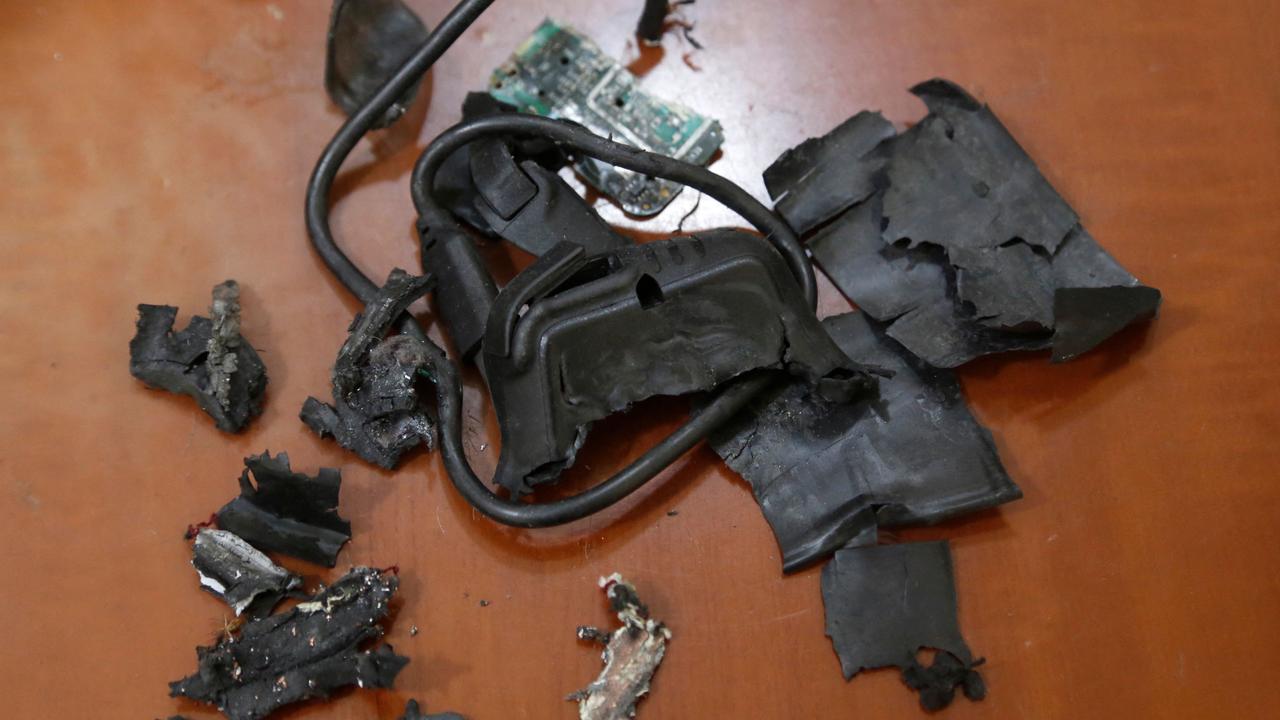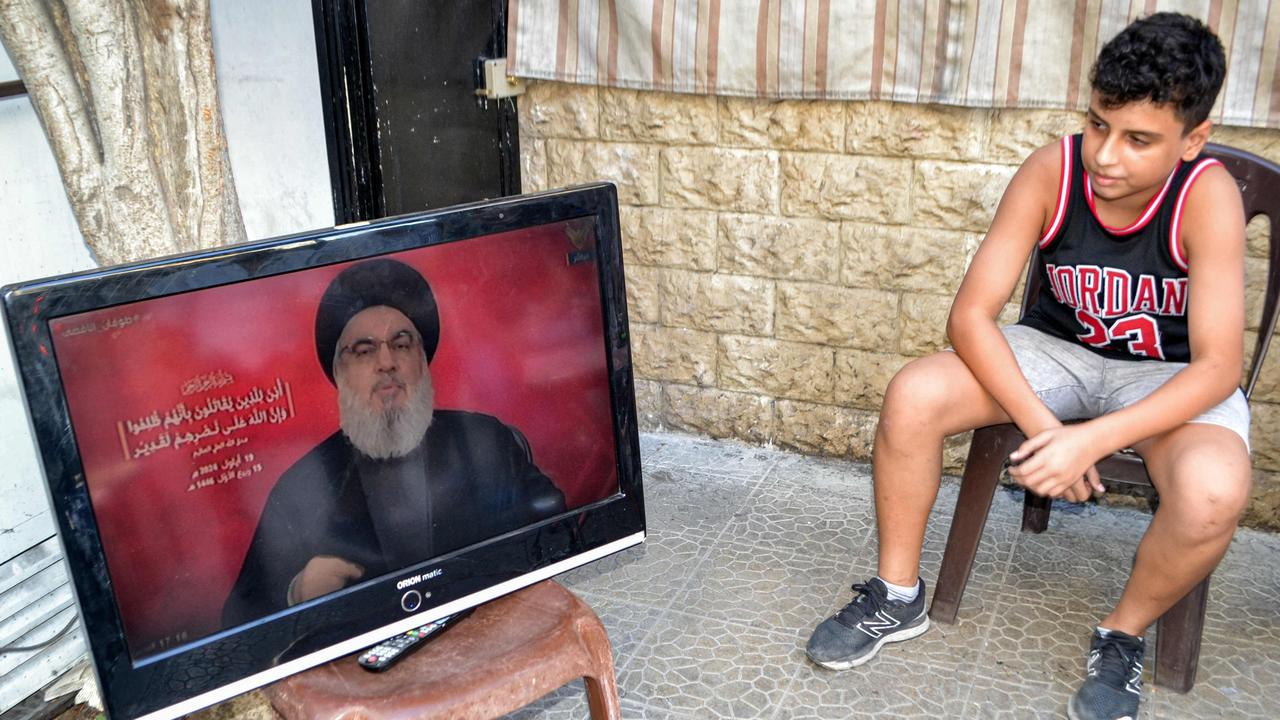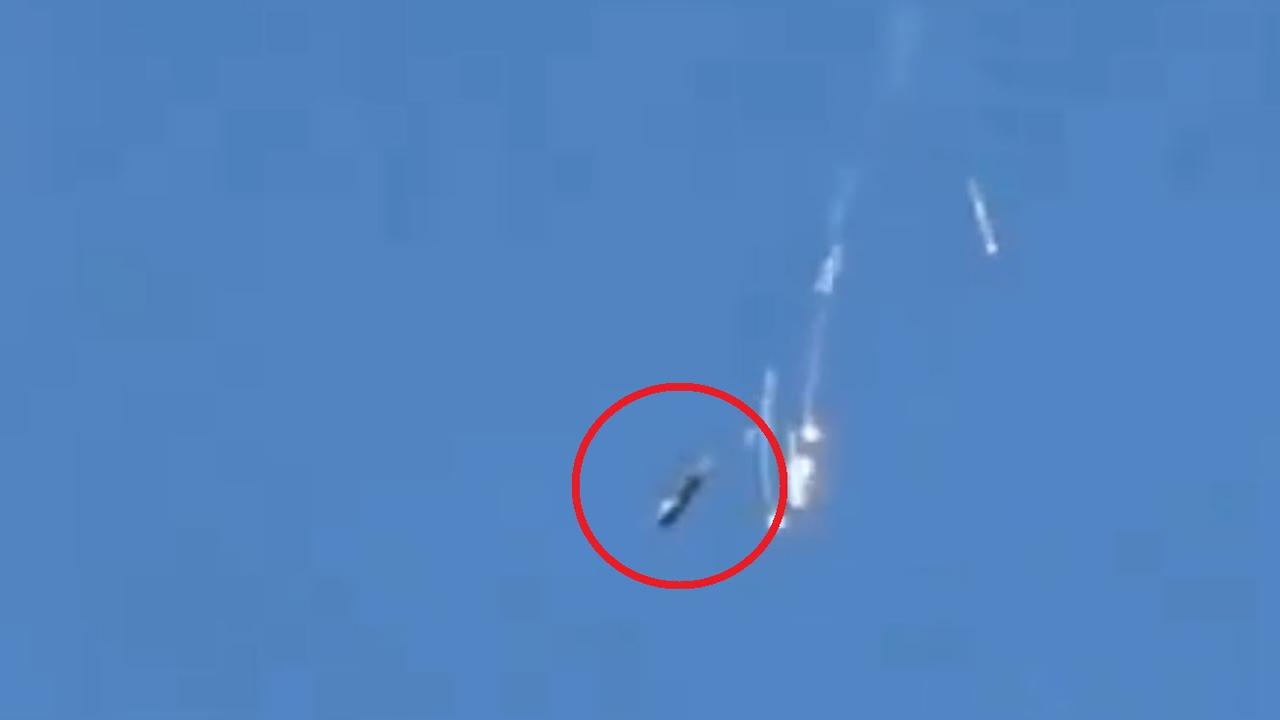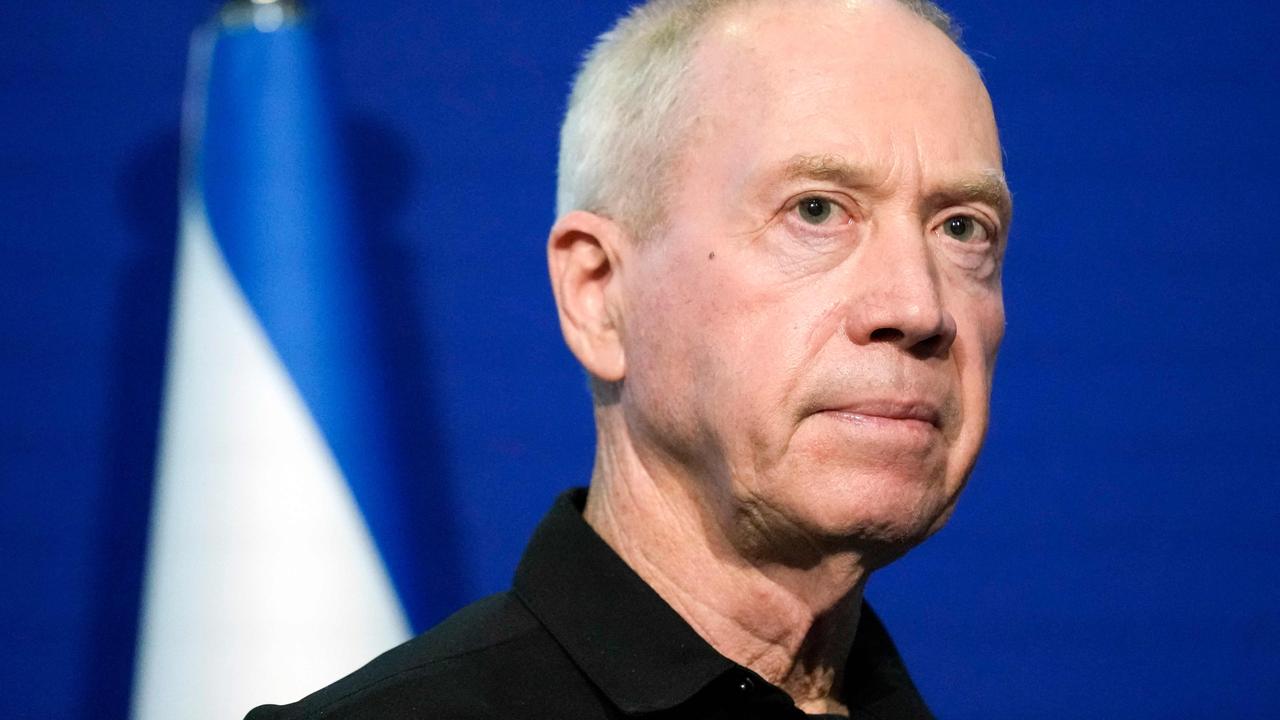
This article is more than
1 year oldThe leader of Hezbollah has said Israel’s mass attacks on electronic devices in Lebanon were planned to kill “thousands,” that it crossed “all red lines,” and was a “declaration of war”.
On Thursday evening, local time, and at exactly the same moment as Hassan Nasrallah made those comments, Israeli fighter jets screamed over Beirut in what’s being reported was a mock attack while Hezbollah positions in southern Lebanon were bombed.
It was almost certainly a message from the government of Benjamin Netanyahu that Israel was in fighting mode as the region teeters on the brink of conflict.
Earlier an Israeli official said it had “approved battle plans,” for a potential confrontation with Hezbollah.
The country’s aim, its says, is to allow 60,000 people to return to their homes on Israel’s northern border with Lebanon, an area which has seen regular rocket attacks by Hezbollah. That could mean pushing back Hezbollah to beyond the Litani River, blunting some of its attacks.
But Nasrallah said on his Thursday broadcast that “no total war will return your settlers to the border areas,” and only a cessation of hostilities in Gaza would bring some semblance of peace.

Iran also chimed in on Thursday, saying Israel would face “a crushing response from the axis of resistance,” the term given to its proxies, including Hezbollah.
In a sign of how concerning current events have become, US Defence Secretary Lloyd Austin has cancelled an Israel trip planned for early next week reportedly due to fears security cannot be guaranteed.
Also, the UK has, for the second time in several months, urged its citizens to leave Lebanon, where Hezbollah is based, while commercial flights remain active.
And yet, all sides seem reluctant of heading off the precipice. Israel said on Thursday that any conflict with Hezbollah would bring “heavy risks,” while Nasrallah tried to play down the effect of the pager and walkie talkie attacks in his speech and didn’t commit to any timeline or specifics of what retaliation would look like.

’Declaration of war’
Nasrallah’s comments come after two bloody attacks in Lebanon that killed 37 people and injured thousands on Tuesday and Wednesday
Hezbollah has blamed both on Israel but Israel has still failed to confirm its involvement.
Many of those injured have lost fingers, hands and even eyes as they peered at the pagers before they blew up.
Nasrallah said the “enemy” had violated “all limits, rules, and red lines,” he said.
“The Israeli enemy intended to kill not less than 5000 people in two minutes and with no consideration for any restraint.
“We’ll call them Tuesday’s massacre and Wednesday’s massacre.
“It can be called war crimes or a declaration of war – whatever you choose to name it, it is deserving and fits the description. This was the enemy’s intention.

He admitted that the electronic attacks were “unprecedented and major blows,” against Hezbollah, which Australia and many other countries have listed as a terrorist organisation.
But he said Hezbollah had other methods of communications and, “The Israeli effort has largely been thwarted”.
“We will not fall, and we will come out stronger. We are preparing to face even worse attacks.
“It is the nature of war. One day the enemy will hit us and the next we will hit the enemy.
“Reckoning will come,” he added, suggesting retaliation. But, as in other broadcasts by Nasrallah, there was no clarification of how that retaliation might occur and he didn’t commit to striking beyond Israel’s border areas.
Nasrallah scoffed at Israel’s aim of securing that border so people could return home.
“You won’t be able to return these people to the north. The only way you can do this is by stopping the aggression on Gaza and the West Bank. This is the only way”.

Israeli jets in mock air raid on Beirut
As he was speaking, Israeli jets loudly streaked across the skies of Lebanon’s capital, breaking the sound barrier and jolting locals.
It’s been reported that the fly past was a mock air raid with flares released rather than bombs. It was an unsubtle reminder of Israel’s firepower.
Israel also bombarded areas of Lebanon close to the Israeli board in one of list biggest attacks yet claiming it hit 30 Hezbollah launchers and terrorist sites that had approximately 150 launcher barrels positioned there that could be use to hit Israel.
After Nasrallah’s speech, the commander of Iran’s Revolutionary Guards Hossein Salami said that Israel would face a “crushing response” for the pager and walkie-talkie attacks.
But again it wasn’t clear what from that would take, when it might be and if would involve Iran which seems unenthusiastic about actions that could lead to a war with Israel.
However there are fears that with each explosion and each death, that is where the region is headed.

‘Heavy risks’
On Thursday, Israel’s defence minister Yoav Gallant said its military action against Hezbollah would continue.
To be clear, Israel’s military actions against Hezbollah have been going on for months.
“As time goes by, Hezbollah will pay an increasing price,” he said in a statement.
“In the new phase of the war there are significant opportunities but also heavy risks.
“Hezbollah feels persecuted. The sequence of our military actions will continue”.
While Israel bombed southern Lebanon on Thursday, it was also announced that two Israel solders ha died after a Hezbollah drone exploded in the Galilee areas close to the border.
US Secretary of State Antony Blinken has said that the focus should be on a Gaza ceasefire and a cranking up of tension in Lebanon will not achieve that.
We continue to work to get a ceasefire for Gaza over the finish line.
“But meanwhile, we don’t want to see any escalators actions by any party that make that even more difficult.”
The US is concerned that it may be forced to play a role in any Israel-Hezbollah conflict that could drag in Iran.
Israel has also received pushback from several western nations, including France and Spain, about the pager and walkie-talkie attacks.
The people of Lebanon are on tenterhooks once again fearful a war is imminent.